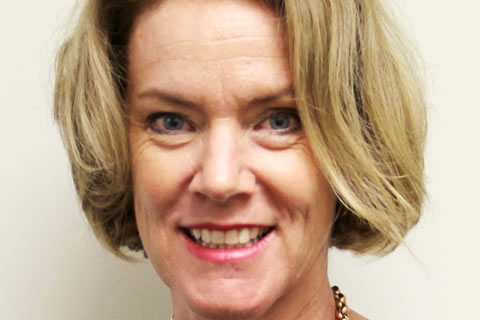Laure Hislop KU Killara Park Preschool
Published on Tuesday, 18 April 2017
Last updated on Wednesday, 14 October 2020

What is your full name?
My name is Laure Hislop and I am 55 years old.
Which service do you work in? How many staff and children are in your service?
I am the Director at KU Killara Park Preschool. This is a 40 place centre with 11 staff.
In addition to being the Director at the preschool, I am also a Professional Learning Consultant with KU, which enables me to share my experience and expertise with other staff throughout the organisation.
What is your professional background and career experience?
I am a university qualified early childhood teacher, and I have spent most of my career working in preschools. Originally with the Queensland Department of Education in State Preschools, and for the last 20 years with KU Children's Services. I have been at KU Killara Park since 2000.
What attracted you to a career in the early childhood sector?
I was always going to be a Physical Education teacher, but I fell in love with the course offered at Brisbane Kindergarten Teachers College (BKTC), which is now part of Queensland University of Technology (QUT) and so I started there instead. At the time it wasn't easy to get into a course at BKTC. The course offered a mix of preschool and primary practice placements and had a kindergarten onsite.
What does a 'normal' day look like for you?
When I'm working in the preschool I'm usually at the centre from 8 to 5. The children leave at 3.30pm, so my days are a combination of working with the children and administrative and leadership tasks.
When I'm working as a professional learning consultant, I'm often running workshops and facilitating Question and Answer Sessions with KU teachers and educators around Sydney. I'm specifically supporting staff to implement a digital reporting platform called Storypark, as well as implementing technology as a curriculum tool.
What makes your service unique?
I think there are three things that families would say are unique and special about the educational program at KU Killara Park:
- Our use of guidance language; this follows the work of Dr Louise Porter and this approach aims for considerate, not compliant behaviour.
- Our use of technology; we have worked actively to incorporate technology into a program, in a way that is in keeping with our open-ended, play based learning approach.
- Our commitment to play based learning and the willingness to engage in outdoor play in all kinds of weather.
In my view, however, the most amazing thing about KU Killara Park is its people. It's the people that make all the other unique elements work so well.
- The staff are committed to continuous improvement. They always give 120 per cent and this extra effort shows in the relationships with families and children, the environment and the program they offer.
- The families are so supportive. KU Killara Park has been operating for over 70 years. With World War II still raging overseas, a group of local parents decided to start a preschool. This commitment to the preschool has continued ever since.
- KU Central Office provides us with support in all areas of education, operations and admin. We really couldn't run such a high quality centre without the CO team to back us up.
What are some of the advantages of working in early childhood education and care?
Working with people who want to, and do, change the world and make it a better place for children.
What are some of the biggest challenges facing the sector?
Currently the sector has a few challenges, however the affordability of quality preschool and child care remains one of the biggest barriers for families. Early education costs, particularly when it is delivered by quality, qualified and innovative early childhood educators.
How has your service changed to deal with these challenges?
At KU Killara Park we are fortunate to have very low staff turnover. This fosters long-term relationships with children and families, and is what drives our quality program.
When it comes to affordability, we all have a role in helping families to understand the value of quality early education, and advocate for greater investment and funding.
How does the early childhood industry need to change to adapt to these challenges?
Everyone in the community; families, the sector and governments need to work together to ensure we can deliver on both the quality and affordability aspects. That includes achieving pay parity for ECE teachers in before school care settings.
What advice would you offer someone thinking about a career or looking for a promotion in early childhood education and care?
Stay up to date with research and make sure your philosophy of education matches with your practice. Make professional learning a priority.
Embrace change, continue to learn and engage in pedagogical discussion and reflection.
Related Articles
There are currently no related articles.
